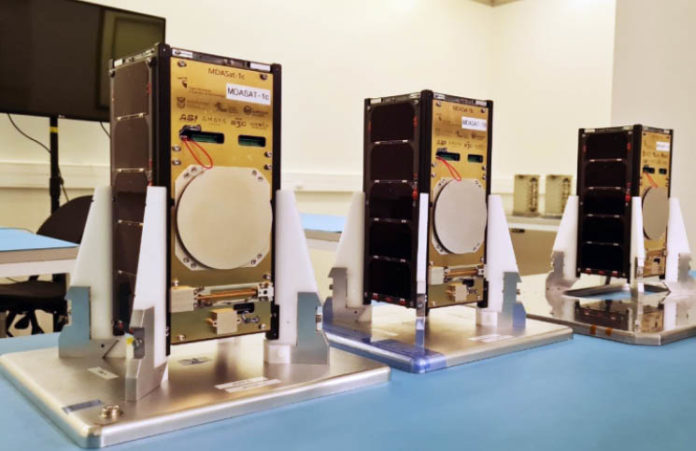
The Transporter-3 mission from expat Elon Musk’s SpaceX lifted off on 13 January 2022 with three nanosatellites locally produced by Cape Peninsula University of Technology’s (CPUT) students with enhanced monitoring capabilities at the US space force station in Cape Canaveral.
In a first for South Africa, a trio of locally produced Maritime Domain Awareness Satellites (MDASat) was launched in accordance with government’s efforts to track and monitor the country’s maritime traffic. The R27-million project has been mandated by the Department of Science and Innovation to enhance South Africa’s oceanic sovereignty. On a small scale, the country has been involved in space activities since the dawn of the space age in 1957 and even assisted with the Apollo Programme that put man on the moon.
Etnard Louw, CPUT satellite system engineer, said that they’d been working on the project for the past three years.
Innovation: African Space Innovation Centre (ASIC) team is happy with the progress made by the Marine Domain Awareness Satellites mission, which was successfully launched. The team has achieved the first milestone with the three satellites, which is to communicate with them and receive the beacon from each satellite.
Acting Chief Engineer on the project, Nyameko Royi says: “At 22:55 hours after the launch we managed to receive the beacon from all three satellites and verified their status with correct battery voltage, the status of the On-Board Computer Image and deployment of the UHF antennae.”
“We managed to also send telecomands to the satellites and successfully received the telemetry.”
Royi adds that the team has not experienced any serious challenge as yet, “although we did have Satellite A booting into fail-safe mode, but that was sorted immediately by requesting the OBC to reset and within the following pass the issue was resolved.”
He says the team is currently in the process of commissioning the Altitude Determination Control System which provides a total control of the satellite’s orbit, that is going to take about two weeks. Reflecting on the progress made since the launch, Royi says: “We are all excited about the project, we are hopeful that we are not to experience any major concerns from the satellites. Regarding the ZACube-2, we have six passes a day we have three in the morning, and we have another three in the evening,” Royi elaborates.
In addition, Royi says: “I would like to thank everyone who has been involved in the project, current CPUT employees and former colleagues. I would like to extend this appreciation to other companies that support our mission, being directly or indirectly involved with the mission.”

